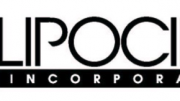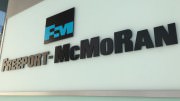LearningRx, a Colorado Springs company that operates a franchised network of 80 tutoring centers in 25 states, is just beginning to recover after a 1½-year battle with the Federal Trade Commission over whether it could back up its advertising claims with scientific studies and other research.
The company settled in May a lawsuit filed in federal court last year by the agency that alleged it “deceptively claimed their programs were clinically proven to permanently improve serious health conditions like ADHD (attention deficit hyperactivity disorder), autism, dementia, Alzheimer’s disease, strokes, and concussions.” The suit said LearningRx also claimed the “training substantially improved school grades and college admission test scores, career earnings, and job and athletic performance” and that its “brain training is 10 times more cost-effective than tutoring.”
The settlement included a $4 million judgment against Learning Rx, though all but $200,000 was suspended, and bars the company from claiming its programs improve performance on the job or in athletics or increase cognitive function of people with age-related memory loss, dementia, Alzheimer’s disease, ADHD, autism, traumatic brain injury or stroke.
LearningRx can only make such claims if it has “competent and reliable scientific evidence,” which the agency defines as randomized and controlled human clinical testing conducted by qualified researchers.
A spokesman for the agency at its Washington, D.C., headquarters declined to comment beyond its news release and blog postings on the suit and settlement.
The agency’s suit, filed in Denver, prompted the company to halt all franchise sales, marketing and advertising for its training programs, which resulted in a 20 percent revenue decline that continued until last month, said Tanya Mitchell, the company’s chief research officer and daughter of founder Kenneth Gibson. The company’s revenue began to recover in September, when it resumed marketing and advertising its programs, but LearningRx hasn’t signed any new franchise agreements since most of its prospect leads “dried up” during the battle with the agency, she said.
“We had our first loss ever during this fight, our revenue was down 20 percent, and because our franchises stopped marketing, eight of our centers closed. While we believe we would have won had we continued fighting, that is why we chose to settle,” Mitchell said. “We spent $750,000 fighting them (the FTC) and having our data reviewed. We are using the money we would have used to fight them to instead comply by doing the research” the agency requires to show the company’s programs increase cognitive function for those with ADHD, Alzheimer’s disease and traumatic brain injuries.
LearningRx, formally known as LearningRx Franchise Corp., traces its roots back more than 30 years in Florida to Gibson’s work as an pediatric optometrist to help his patients more easily learn to read. Gibson, who had difficulty reading as a child as a result of dyslexia, found that reading skills could be improved through “interval training” similar to what professional athletes use to raise the level of their athletic performance. He began to sell licenses for his research and reading program to other optometrists and later psychologists, numbering 500 by 2000.
The program grew from reading to include all cognitive skills, and he later added tools to help license holders better manage their practices. He moved to Colorado Springs in 2000 with three of his five children, planning to retire and turn over the business to them. He set up a center in the Springs for friends who wanted the training for their children and to train license holders. Realizing the program had grown beyond licensing and become more of a franchise operation, he began selling franchises, and LearningRx became one of the nation’s fastest-growing educational franchises.
LearningRx became a target for the agency amid its crackdown on what it calls “deceptive claims about cognition” that also included Lumos Labs, a San Francisco company that raised more than $60 million from venture capital funds and Discovery Communications Inc. to produce the popular Lumosity smartphone application. The company agreed in January to a $50 million settlement that was reduced to $2 million over allegations it falsely advertised that the suite of games improved memory, attention, flexibility, speed of processing and problem solving.
The agency said in a May blog post on its website (ftc.gov) that the market for ways to preserve or improve cognitive function has grown rapidly in recent years as baby boomers and others look “for ways to amp up their performance at school and on the job, and stave off the effects of aging.”
Mitchell said LearningRx was “lumped in with brain games and other apps. We are based on 35 years of research and more than 95,000 clients. We had taken the path of measuring our (effectiveness) when the FTC first contacted us and wanted to see our data, so we sent them our data and research representing 5,000 clients.”
LearningRx set up the Gibson Institute of Cognitive Research, headed by educational psychologist Amy Moore, in early 2014 to fund, conduct and review studies and other academic research on the effectiveness of LearningRx’s programs. That work was in its early stages when the FTC first contacted LearningRx about its investigation into the company’s advertising and marketing claims. Much of that research involved “quasi-experimental” controlled studies, observational studies and before and after assessments of nearly 20,000 clients, Moore said.
However, the agency told LearningRx executives and lawyers it instead wanted data from randomized control trials using placebos and a double-blind format, or the same standard required for pharmaceutical drugs and one never before required from educational companies, Mitchell said. The company resisted using placebos on children, citing ethical concerns and argued that the double-blind format would be impractical for educational training.
The agency dropped the placebo requirement but kept the blinded requirement though only “to the maximum extent possible.”
LearningRx spent the next 1½ years hiring “the best of the best” to complete new studies on the effectiveness of its programs, using the randomized control trial requirement to give the agency “the data they wanted,” Mitchell said. The company also hired Howard Wainer, former longtime principal research scientist at the Educational Testing Service and distinguished research scientist at the National Board of Medical Examiners, to review and verify all of its research. He found the company had “competent and scientifically reliable evidence” to back its advertising claims.
Moore said the new randomized control trials recently completed for the company came up with better results than its previous studies, and “no matter what the study, diagnosis or what skill was tested, the results were consistently the same. That is incredibly powerful” evidence of LearningRx’s effectiveness.
While company officials wanted to continue fighting the agency, its lawyers estimated the minimum cost of a court battle at $200,000 and that became the starting point for settlement discussions. The company and agency eventually agreed on a payment of that amount without admitting or denying any allegations in the agency’s suit. Mitchell said LearningRx had less than 24 hours to comply with the settlement, which required the company to remove more than 1,000 pages of advertising and marketing materials from its own and its franchises’ websites.
“I really feel that we won. We are a small, family-owned company, and they tried to set an example with us. We geared up to fight them, but our lawyers said it could cost millions,” Mitchell said. “We had no consumer complaints, and our business practices had never before been questioned by any regulatory agency. We survived because we had substantial reserves.”
Gibson, who was also named in the suit and included in the settlement, is in the process of retiring with daughter Kim Hanson replacing him as CEO and son-in-law Dean Tenpass becoming chief operating officer. Mitchell got emotional when saying “to end his career on this note is difficult.”
For more information, please visit the source link below.
Source: gazette.com




